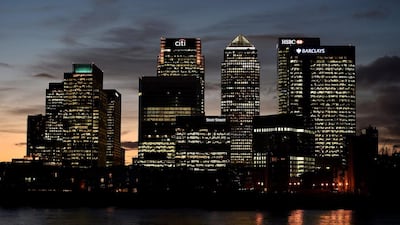The panic in financial markets, which followed Britain’s shock Brexit vote and a slowdown in the Chinese economy, has prompted Middle Eastern sovereign wealth funds to rein in their spending on high-profile overseas office blocks and hotels.
The amount of money being spent by Middle Eastern sovereign wealth funds and big-name investors on commercial property in the United Kingdom, Europe, Asia and the United States plummeted in the first half of this year, new research shows.
According to CBRE, which tracks the amount of commercial real estate bought by the likes of the Qatar Investment Authority (QIA) and the Abu Dhabi Investment Authority (Adia), wealthy Middle Eastern investors spent less than US$50 billion on overseas property in the first six months of this year – down from a staggering $156bn during the whole of last year.
“The uncertainty in global financial markets that has followed the UK’s vote to leave the European Union means that overall commercial real estate investment is almost certain to be down in 2016,” said Michael Haddock, the senior director of global research at CBRE.
Nevertheless, key investments made during the period included Adia’s HK$18.5bn (Dh8.76bn) purchase of a 50 per cent stake in Hong Kong’s Grand Hyatt, Renaissance Harbour View and Hyatt Regency hotels.
By the end of last year the global economy appeared more risky to sovereign wealth funds as the Chinese economic slowdown and a tightening of US monetary policy spurred sovereign wealth funds – which accounted for 38 per cent of all purchases between 2007 and 2015 – to cut spending.
Adia closed its London office in November after more than 20 years, and earlier this year the QIA put part of its Canary Wharf estate on the market – although it has been rumoured to be thinking of pulling the sale.
CBRE said that funds were switching focus away from the UK, where they have historically invested the lion’s share of their cash, to Asia and the US.
The broker estimates that Middle Eastern sovereign wealth funds spent just $200 million in the UK last year.
“This may have been foresight regarding the outcome of the UK’s EU referendum,” said Mr Haddock. “However, it is more likely to be the result of falling economic growth in the UK and portfolio balancing after very high UK investment in 2013 and 2014.”
JLL reported earlier this year that Britain’s decision to leave the EU in June has prompted foreign investors, including those from the Middle East, to eschew their usual investment choice, London.
It said that cross-border capital flows into London property fell by 44 per cent in the first six months of the year compared to the same period a year earlier as investors worried that Brexit would force banks and other financial institutions to move their headquarters away from the City of London, leaving thousands of square feet of office space empty.
lbarnard@thenational.ae
Follow The National's Business section on Twitter

